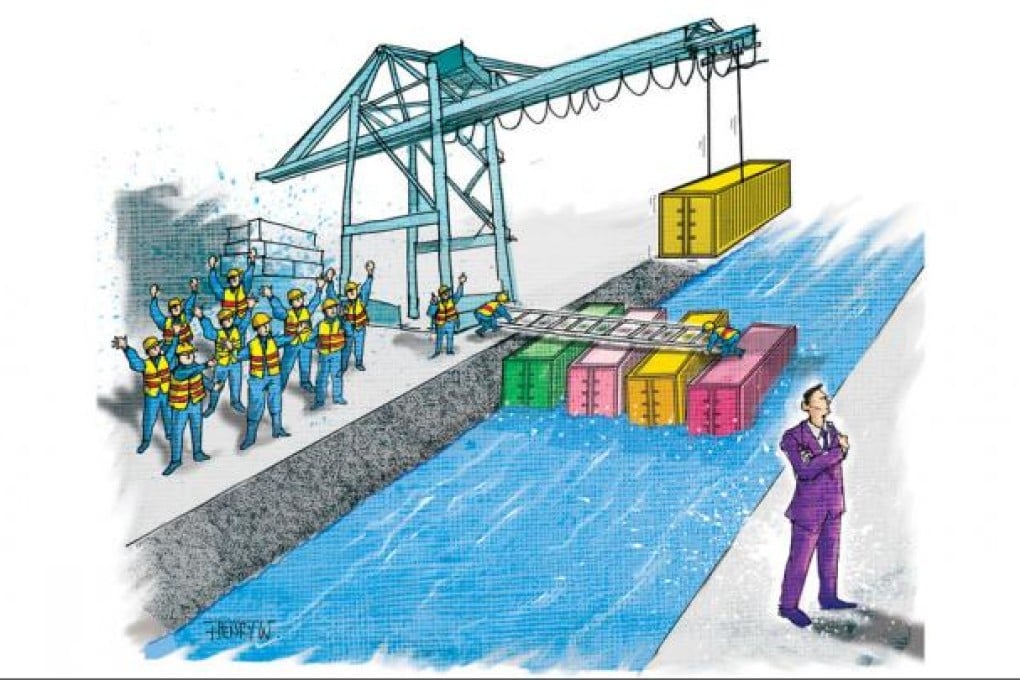HIT must come to the negotiating table over dockers' pay dispute
Geoffrey Crothall says the HIT port workers' strike can be resolved, if the company is willing to negotiate with the dockers' union representatives on behalf of its contractors

There is nothing inherently difficult about resolving labour disputes. If the two sides in the dispute are willing to talk and a mechanism exists to facilitate those talks, then there is every chance an agreement can be reached.
The problem with the Hong Kong dock workers' pay dispute is that neither of those two preconditions is in place. The key player in the dispute, Hongkong International Terminals (HIT) has resolutely refused to engage in talks with the workers and their trade union representatives. HIT and its managing director, Gerry Yim Lui-fai, claim the strike has nothing to do with the company and should be resolved by the contractors who technically employ the workers. The contractors, meanwhile, have been reluctant to talk to the trade union, the one body that is best placed to represent the workers and negotiate a deal with management.
The workers and the trade union want to negotiate but the entrenched attitudes of management at HIT and the labyrinthine network of contractors and sub- contractors that it created has effectively nullified any effective channels of communication. Going on strike was the only option left for workers who had seen their pay stagnate over the past decade as the cost of living escalated rapidly.
The reason why Hong Kong's container ports have layer upon layer of contractors is simple, and it has nothing to do with efficiency or the smooth operation of the port. By parcelling up the dock workers in a network of different contractors, management hopes to divide and rule, and snuff out any protest before it can escalate.
That tactic may work for a while but it has clearly failed this time. Not only has the solidarity of the workers inside the port increased, as more and more dockers join the strike, they have also garnered support from other workers such as the truck drivers and ordinary members of the public, raising HK$1.4 million in donations in just the first week of the strike.
Sooner or later, Yim and HIT are going to have to accept reality and talk to the workers and their union representatives. Indeed, this is precisely what managers at Shenzhen's container ports did when a wave of strikes hit the ports of Yantian and Shekou six years ago.
The most noteworthy incident at that time occurred in April 2007 when more than 300 crane operators at the Yantian International Container Terminals (which is part of the Hutchison Port Holdings Trust, along with HIT) went out on strike demanding better pay and working conditions. The workers also demanded the right to elect their own trade union representatives and it was those representatives who eventually negotiated a collective agreement on wages and working conditions with the Yantian management.